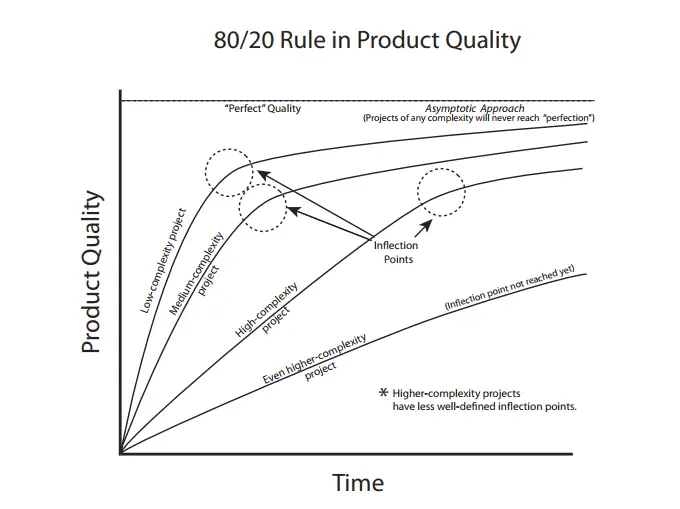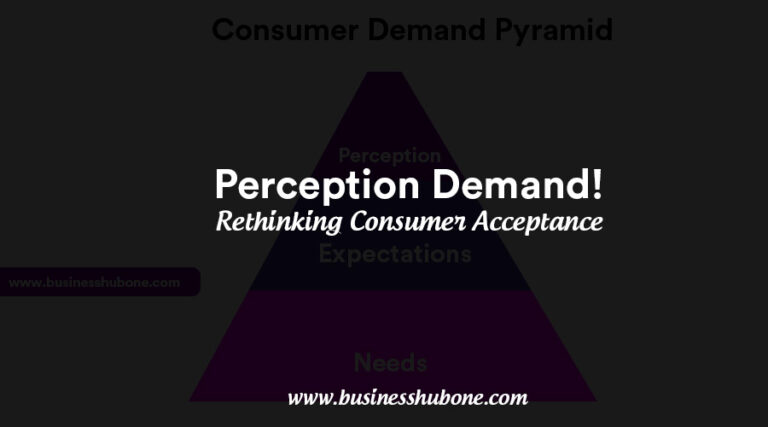Importance of Trade-offs in Business!
Business is a game of trade-offs! Opportunity costs and trade-offs are an integral part of the process of making sound business decisions.
From having an idea of building a business with a solid business model, strong customer base and tons of money in revenue. There is one thing an entrepreneur or business manager will inevitably make every single day – Decisions!
And with those decisions comes choices to be made and with those choices made come opportunities forgone.
Not every opportunity that is presented for a business can be successfully exploited with respect to the dictates of the business model of a particular business.
This is the basis for the birth of trade-offs
Recognising trade-offs will ensure that the needed balance is achieved with each and every business decision made. This is the first step to success in any venture!
PROPERLY made decisions are PREMIUM enablers of GROWTH!
Related: What Makes Great Brands?
Table of Contents
Tensions from Trade-offs
Tension is the resulting pressure when two or more forces are applied to a system in opposition to one another. Effective use of trade-offs helps ease these rising tensions.
When addressing these tensions, we should recognize that there is no right answer, but rather a balance of trade-offs.
There are no solutions. There are only trade-offs.
Thomas Sowell
There may be one or more optimal answers that are as close to right as we could hope to get. These optimal answers are elusive. In a complex system (such as a business), the optimal choices for any particular situation depend highly on what your situation is, what your viewpoint is, and in what place and time you are at!
This post defines the most common trade-offs that entrepreneurs and startup founders face as they build their enterprises.
Example of Trade-offs in Business
Focus or Opportunities
New opportunities abound every day and making the best of them is dependent on the business strategy/model you have adopted or better put – your business focus!
A premium consulting service will not benefit better from offering cheap consulting services to small businesses in online sales tax compared to a traditional store.
This is a result of the choice their business
Do you pursue new, unproven opportunities or do you keep a focus on what
you think are your existing strengths?
Don’t let a relentless focus on “the plan” keep you from taking advantage of opportunities to make money.
Perfection or progress
The law of diminishing returns states that in all productive processes, adding more of one factor of production, while holding all others constant (“ceteris paribus“), will at some point yield lower incremental per-unit returns
Wikipedia
The 80/20 rule of productivity states that 80% of the results come from 20% of the efforts.
As you strive for perfection, in product development or service delivery, ensure that you do not stretch the limits to where there are no commensurate results to justify your efforts!
Efforts must be made to determine the point where diminishing returns, as it will not always be clear, and deliberate actions be taken to cut off putting more effort.
A CEO/business manager might face this more with professional/artistic/ hands-on employees who will look for perfection as a means of self-satisfaction in their craft. This might significantly reduce the time to completion of projects and invariably impact profits.
In reaching the required balance between perfection and progress, every business manager must consider employee morale in his/her dealings. Requiring employees to hands-off production and roll out products can affect their sense of accomplishment and self-expression!

Source: Startup- insider’s guide to running a business!
Process Vs Agility
In larger corporations, there is a lot of paperwork that comes with making decisions. This helps to increase the quality of the decisions made in the organization.
Maybe not!
Smaller companies find it easier to make critical business decisions as they grow. This is due to the fewer number of people that have to say ‘YES‘ before critical decisions go through!
Optimizing trade-offs
These three steps are a process to getting the best out of trade-offs
a) Awareness
Recognize the points of friction in your business!
Being aware that a problem exists is the first step to ensuring a solution is reached. In dealing with trade-offs it is necessary to be able to recognize the situations in that only one or the other can be achieved.
It is much easier to make the best decisions when you are completely aware of the different choices you have.
This ability to categorize situations as they present themselves will greatly improve the decision-making process.
b) Plan
A plan is a set of carefully thought out/written down steps to solve a problem or execute a project.
Planning helps in the consideration of all the available options in any particular situation, evaluating their pros and cons in order to make the best possible decision.
c) Action
Once these trade-offs required are recognized and effective planning is used to evaluate the options available, there is enough data to take action and make the right choice.
Importance of Trade-offs in Business!
Trade-offs are important in business as it helps business owners prioritize the actions that move the needle in the business rather than focussing on takes that do now deliver value to customers or increase the revenue of the business significantly.







One Comment
Comments are closed.